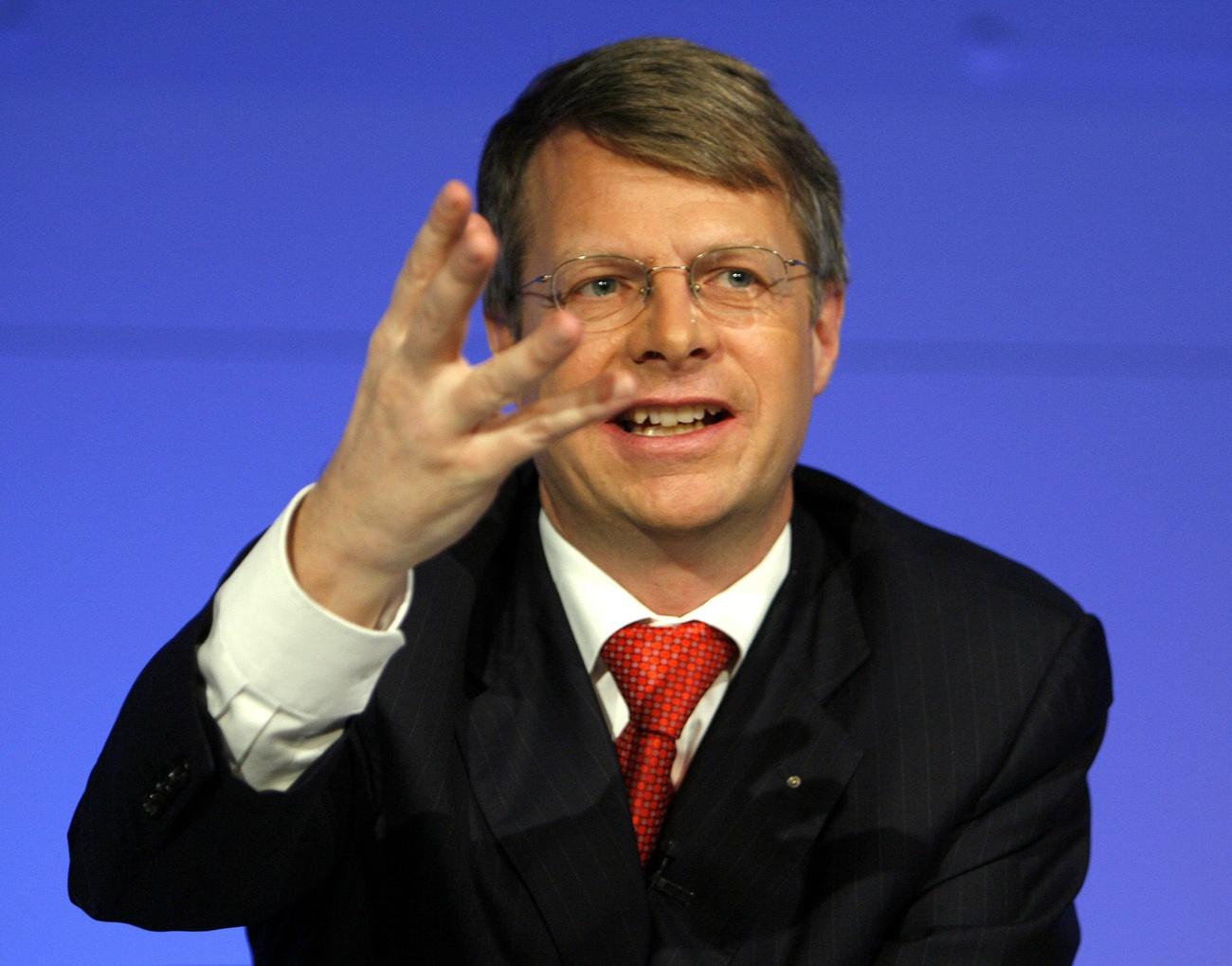
Former UBS head excited by ‘powerful’ potential of crypto banking

Peter Wuffli, the former CEO of Switzerland’s largest bank, has returned to the arena after taking up a role as a director at the newly formed Swiss crypto bank Sygnum.
SygnumExternal link, along with SEBA, was this month awarded a banking license by the financial regulator. Both banks aim to catch the wave of enthusiasm over cryptocurrencies and the emerging class of digital assets, created and traded by digital ledger technology systems.
Wuffli knows that financial innovation can come with a heavy price tag – as evidenced by the bursting of the mortgage-backed securities bubble that nearly took down UBS. But this time he is convinced that innovation could make the markets more efficient.
swissinfo.ch: What attracted you to the world of cryptoassets?
Peter Wuffli: After the hype period, things are picking up with serious players. There are substantial opportunities in this technology and the cryptocurrency world. I was hooked because I saw how this idea was mobilising resources of finance and talent. It reminded me a bit of the experience 20 years ago when some of our best equity traders set up a hedge fund. It felt like a similar opportunity, where innovation meets talent.
Sygnum went the hard way by applying for a banking license. I felt this would only fly if we were fully regulated. That was a signal that Sygnum was serious and that the regulator was serious about enabling innovation in the Swiss financial centre.
One thing missing from my CV is that I have never been involved in the creation of a new bank. I am a curious person and I love new things, it’s energizing.

More
Switzerland’s first crypto banks receive licences
swissinfo.ch: What are the business opportunities for crypto banks?
P.W.: The most immediate opportunity is the existing $220 billion market of institutions and private individuals who already own cryptocurrencies. Thousands of clients have contacted us for a one-stop shop for asset custody, loans and trading cryptocurrencies seamlessly with fiat currencies.
The next frontier is tokenised assets such as company shares, real estate, art or commodities. That’s where we will see how far and how fast this space can go. There are a lot of question marks, many of them regulatory, that may take a couple of years to figure out.
swissinfo.ch: What advantages can DLT bring to finance?
P.W.: DLT has the potential to be a faster, more reliable and cheaper technology for basic services. We could securitise shares and build smart contracts to produce share registers that are up-to-date and correct. You can do away with spreadsheets and combining systems to pay dividends, do capital increases and trade on the secondary market. And trading could take place without long settlement times and counter-party risk.
On a deeper, philosophical level DLT is about democratising financial markets. I am not a libertarian, I am a liberal, so I believe in free markets. I may be dreaming but the longer-term potential is to create more open, broader and easier cross-border access to assets.
swissinfo.ch: Give me an example of how DLT could have been helpful to you in the past.
P.W.: DLT gets to the very core of how a financial institution is designed, which is accounting. In traditional accounting you have three or four layers of control: the bank’s internal accounting department, internal audits, external audits and the bank supervisor.
DLT is an accounting system that ensures that everything is traceable and correct and can create control through consensus building across various parties. This is better than a hierarchical chain of bureaucratic controls. I find that powerful.
swissinfo.ch: And could DLT have averted the financial crisis?
P.W.: Only partially. At this time, there was a lot of bad data and more transparent systems would have allowed for better actions. Having said that, the financial crisis was much more fundamental and had various fault lines. Better data could not have solved the erroneous political ambition to grant mortgages to people with insufficient incomes.
swissinfo.ch: Is there a risk that digital assets could also lead to future problems in the financial markets?
P.W.: We cannot overestimate the role of technology. Irrespective of the tool, investors must still apply good judgement about risks and returns. Even though DLT could make it easier for investors to gain access to assets there should still be proper prospectuses and transparency to enable them to make sound judgements. There is no reason to assume that investor protection will be undone by new technology.
swissinfo.ch: And it may also be possible to create private currencies, such as Facebook’s Libra.
P.W.: We don’t know yet what Facebook is really planning with Libra, hence I cannot comment on it. However, I do believe that the regulation of financial services and control over currencies are essential tasks of the state and that currencies cannot be decoupled from sovereign states.
As soon as someone tries to challenge the sovereign monopoly on currencies they will not allow it, and for good reason. Besides, I don’t think people will treat private currencies like that without the power of a country and a political system behind it.

More
Explained: The technology behind bitcoin and blockchain

In compliance with the JTI standards
More: SWI swissinfo.ch certified by the Journalism Trust Initiative








































You can find an overview of ongoing debates with our journalists here . Please join us!
If you want to start a conversation about a topic raised in this article or want to report factual errors, email us at english@swissinfo.ch.